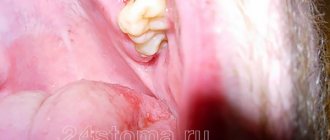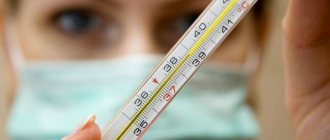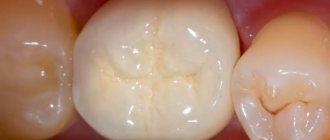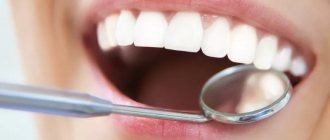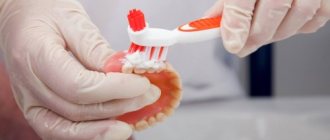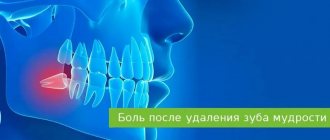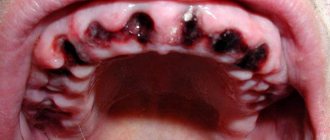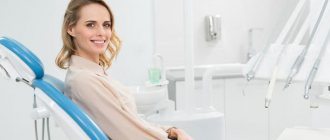Proper oral care after tooth extraction
To prevent unwanted consequences from occurring, it is important not to do the following:
- touch the wound with your tongue or use other foreign objects for this,
- rinse your mouth generously in the first two days,
- make sudden movements with the facial muscles,
- plunge into hot water or rinse with it,
- Hard to work,
- eat food in the first 3 hours that follow the procedure, it is permissible to drink, but refrain from boiling water.
- You should also abstain from cigarettes at this time,
- alcohol is contraindicated within 24 hours after surgery. If your doctor prescribes the use of antibiotics, you should not drink alcohol until the end of the course of therapy.
Is it possible to return to a normal lifestyle?
It is important to pay attention not only to hygienic care of the hole, but also to habits in general. These, as well as lifestyle, can significantly affect healing. Therefore, out of a sense of caution and self-preservation, it is better to temporarily refrain from certain habits. The following points are worth noting:
- It is highly advisable to refrain from smoking and drinking alcohol on the day of surgery (or better yet, several days after). Tobacco dries out the mucous membranes and can cause dry socket syndrome. And alcohol and pills are generally incompatible.
- Do not touch the hole with your tongue or create a vacuum in your mouth. The latter is relevant for those who are used to sucking their lips. These actions can break up the blood clot.
- It is better to refrain from physical education and physical labor for a couple of days, and it is advisable to sleep on a high pillow.
- Ideally, you should avoid high temperatures (steam rooms, baths) and hot compresses, which can cause bleeding.
- After removal, you cannot eat for several hours. Then for at least a week you need to make sure that the food is soft, liquid, not cold and not hot. It is better not only not to chew on the healing side, but also to prevent food from getting there at all.
- You need to brush your teeth very carefully, especially near the wound. In the evening after removal, it is better to abandon the procedure.
A cold compress will prevent swelling
Immediately after the manipulations, it is necessary to apply a cold compress, since after tooth extraction the cheek may swell.
To do this, take some chilled meat products or ice and apply it, after wrapping it in a cloth. Such actions will help to minimize or even eliminate swelling of the soft areas of the face that can form in the event of a serious intervention.
It is recommended to keep the ice for about 5 minutes, apply it 3-4 times, taking a break between applications. It is important to apply cold immediately after surgery, since further this action will not bring the desired effect. Under no circumstances should you use a warm compress or warm the tissue in any other way - thoughtless intervention can cause suppuration.
Expert opinion
Roman Borisovich Alekperov
orthopedic dentist
Experience: 24 years
If you are just planning to visit a surgeon for tooth extraction, consider the option of one-stage implantation. This unique method involves placing an implant into the resulting socket immediately after extraction. No additional manipulations - incisions or detachment of a mucosal flap, as with the classic protocol - are performed. This gentle method will allow you to resolve the issue of tooth restoration immediately at the time of its removal. Important: there are contraindications for immediate implantation! Please clarify the possibility of its use in your case during your consultation.
If your gums bleed after tooth extraction
You can stop bleeding in a number of effective ways. In most cases, this disease affects people with high blood pressure with hypertension or patients who have had a large vessel damaged.
It is worth noting that due to psychological overload and stress during activities, even in people with normal health, blood pressure may rise. The first step is to apply a tightly rolled piece of sterile bandage to the bleeding site, and then measure the patient’s blood pressure. If it is elevated, you need to resort to medications.
With increased blood pressure, the chance of hematoma and blood appearing after tooth extraction increases. This development of events is dangerous due to suppuration, which will then have to be opened, and bleeding can cause dizziness and weakness.
If bleeding appears several hours after removal, you should not wait for the situation to normalize, but seek medical help.
Diabetes mellitus during tooth extraction
If a person has this disease, it is recommended to measure their sugar levels immediately after surgery. Tension leads to the production of adrenaline, which can increase the rate. By measuring sugar, a person will know about his condition and will be able to prevent side effects.
If a gauze pad is placed on the gum
A gauze swab is placed on the hole if it is etching. In other situations, the use of this remedy is undesirable, as it can provoke inflammation. As the tissue is removed, the blood clot that has formed in the socket is also removed.
If the tissue lining is on the wound, it is necessary to carefully remove it after a certain period of time after removing the tooth. A tampon that has absorbed a certain amount of liquid automatically becomes a breeding ground for a wide range of bacteria. You should not keep it in your mouth for a long time to prevent the appearance of inflammatory processes in the hole that remains after tooth extraction.
Antiseptic rinses for suppurations
There is no need to rinse your mouth intensively; instead, use “baths”. In order not to disturb the damaged tissues, take a special anti-inflammatory solution into your mouth, keep it inside, and then spit it out.
What is the difference between removing top and bottom eights?
Removing a tooth in the lower jaw is more difficult. The reason lies in the greater density of the alveolar process and the branching of the roots. When removing lower third molars, the risk of breaking off a root fragment increases, so the operation has certain specifics. To completely eliminate pain, conduction anesthesia is used here. In this case, the nerve through which the pain signal is transmitted is blocked for a long time. In the upper jaw, infiltration anesthesia, the so-called “freezing,” copes with the task of effective pain relief.
Tooth extraction: painful or not?
The popular idea of discomfort during the removal of a “wise” tooth is nothing more than a myth. Even the most complex dental operations are performed without the slightest pain, and painless removal of the third molar has long become the standard of an ordinary clinic.
The latest generation carpule anesthetics leave no chance for pain. The needle of a carpule syringe is thinner, so its insertion into the tissues of the oral cavity is almost not felt. To relieve sensitivity of the gums at the injection site, it is first lubricated with an anesthetic gel.
Particularly susceptible people experience psychological discomfort from the sounds of rocking a tooth with forceps. To eliminate stress, dentists use sedatives. Extraction with sedation allows the patient to relax in the dentist's chair and relieves anxiety.
Baths should be carried out if:
- an incision was made to expose the gumboil;
- the tooth was removed due to inflammatory processes;
- there are harmful deposits on the teeth and caries;
- removal of the root of a tooth with caries
For procedures with baths, you can use an aqueous solution of chlorhexidine with a concentration of 0.05%. This drug is inexpensive, it can be purchased ready-made, it has excellent antiseptic effects, and tastes bitter. Such procedures must be carried out 3 times a day. The solution must be kept in the mouth for 1 minute.
Contraindications
Thanks to the variety of techniques for each person, you can choose a way to restore the beauty of your smile. All dentures have indications for use and contraindications. The decision to replace a lost element after amputation is made by the attending physician based on the results of dental diagnostics, taking into account the age and condition of the body.
As for the general reasons, experts do not recommend performing surgical procedures if you are pregnant, undergoing rehabilitation after a serious illness or complex operation, or are sick with ARVI. You should not install implants or dentures during periods of exacerbation of chronic diseases, exhaustion or acute stress.
Tell your doctor if you are allergic to anesthetics or take any medications. Some drugs affect blood clotting and the rate of tissue regeneration. This can create problems during the procedure and while the wound is healing.
Often, poor oral hygiene is an obstacle to treatment. This temporary contraindication can be eliminated through therapeutic measures.
If your gums hurt after tooth extraction
Tooth extraction leads to damage to soft tissues, which contain a large number of nerves. The doctor performs the procedures under local anesthesia, so the patient feels discomfort only in one thing - the need to spend a certain amount of time with his mouth wide open.
When the analgesic effect ends and the tooth has already been removed, the pain returns. Usually they are of a “aching” nature and do not fundamentally interfere with normal life activities. But in some cases the pain can be intense.
If the tooth extraction was not caused by inflammatory processes, you can avoid the use of painkillers. If pain relief is necessary to avoid severe pain after tooth extraction, it is recommended to take an analgesic until the anesthetic wears off.
Using painkillers after tooth extraction
If you experience intense pain, you can resort to using “Ketans”; The medicine is dispensed by pharmacists in pharmacies only with a prescription - this is due to the presence of side effects. Severe pain can occur during complex and lengthy medical intervention, especially if it was accompanied by drilling of the bone around the tooth, or if the operation was performed poorly, unprofessionally and traumatically.
“Ketorol” (an analogue of “Ketanov”), “Analgin” (will help reduce mild pain syndrome), “Spazmalgon” (in addition to the analgesic effect has an antiseptic effect), “Baralgin” (a drug that contains “Analgin” in its composition).
What can be put in place of an extracted tooth?
There are many options for replacing an extracted tooth. An experienced orthopedic surgeon will offer removable and fixed structures, solutions for restoring individual teeth or a number of missing units, and reconstruction of a completely edentulous jaw. For each case, protocols, methods, and treatment techniques are provided.
How to insert a tooth in place of a removed one - options:
- prosthetics on dental implants;
- bridge prosthesis;
- removable prosthetics;
- clasp prosthesis.
What can be put in place of an extracted tooth depends on:
- number of units removed;
- condition of bone tissue;
- dental diagnoses;
- patient's age.
Based on the preliminary diagnosis, the doctor makes a decision on the timing and features of treatment.
Wisdom tooth removal
Wisdom teeth are the painter or chewing teeth located at the end. When chewing, they do not play a significant role; the structure is no different from ordinary teeth.
There are several generally accepted indications for removal:
- ingrowth of roots into the maxillary sinus,
- partial eruption
- facial neuralgia,
- inclined or lateral position,
- caries damage.
When removing a wisdom tooth, painkillers are used to relieve pain. Consequences after the operation may occur depending on the complexity of the operation, surrounding tissues, location, and access to the tooth.
Negative consequences may occur if the patient does not adhere to the doctor's orders. Baths of soda and herbal decoctions will also help alleviate the condition after removal. It is forbidden to rinse; it is important to preserve the blood clot, which protects the wound from infection.
Price
The Center for Private Dentistry Dr. Levin provides a case payment system.
- When implanting Nobel Biocare PMC Select or Groovy, the cost includes the surgical stages, including the design model, surgery, anesthesia, and all necessary procedures. The price is indicated taking into account the preparatory stage.
- Removal is paid separately, the price includes surgery, inflammation relief, socket rehabilitation, consumables, anesthesia.
- The case for installing a metal-free zirconium dioxide crown includes all stages - impressions, manufacturing, installation.
- Sinus lifting and any bone tissue augmentation operations are paid separately.
In what cases is it necessary to remove the nerve of a tooth?
Removing the nerve from a tooth kills it. Almost no nutrients are supplied, causing it to become darker and weaker. During treatment, dentists try to keep the dental nerve alive, but sometimes they have to take forced measures to put the oral cavity in order.
Nerve removal is necessary if:
- Deep caries.
If the disease has destroyed almost the entire tooth, there is nothing to save; the main thing for the doctor is to prevent further destructive process.
- Prosthetics.
To install the prosthesis, an incision must be made in the pulp chamber. This is especially necessary in situations where teeth grow at an inclined angle.
- Incorrect treatment in the past.
This can happen if during treatment the doctor resorted to opening the pulp chamber. In this case, it is necessary to partially remove the nerve.
- Mechanical damage.
Injury can lead to chips in the enamel where the nerve is located. If the front teeth are damaged, the nerve is not completely removed.
Antibiotic therapy after removal of unhealthy teeth
Antibiotics are prescribed by the attending physician - dentist. Drugs are prescribed in case of difficult extraction, to prevent the risk of complications if the tooth was removed due to inflammatory processes.
The drug usually prescribed is Lincomycin 0.25. Take capsules after tooth extraction for 5 days, 2 capsules 3 times. If purulent inflammation is present, the antibiotic is prescribed as intramuscular injections.
Those who suffer from intestinal and stomach disorders can take antibiotics in effervescent forms, for example, Unidox Solutab and Flemoxin Solutab.
Indications and contraindications for immediate implant placement
Indications
- Mechanical damage to the root - fracture, dislocation
- Restoration of frontal units
- Therapeutic treatment did not bring results
- Sufficient bone volume
- No contraindications
Contraindications
- Deficiency, looseness of bone
- Inflammation at the root apex
- Enlarged socket after removal
- Inflammatory processes of the oral cavity, gum pathologies
- Reduced immunity, systemic diseases
- Pregnancy, breastfeeding period
